In 2018, the PARC Diversity, Equity, and Inclusion Task Team (DEITT) implemented a survey with the overall goal of assessing the demographics of our membership and members’ current perceptions regarding PARC’s efforts to support and foster diversity, equity, and inclusion at annual meetings.
Diversity encompasses our individual differences in race, ethnicity, gender, nationality, professions, and other aspects of identity.
Equity is ensuring that all members are able to access opportunities.
Inclusion is how well we incorporate and engage the differences among our members to strengthen the whole.
Download the Results
Download the results of the survey as a PDF
Participation in the Survey Thus Far
In 2018, the PARC Diversity, Equity, and Inclusion Task Team (DEITT) implemented a survey. So far in 2019 data has been collected from two regions {Southeastern PARC and Northwestern PARC) and in two state chapters (Michigan PARC and Ohio PARC) (50 respondents total, 72% of which completed the survey), with plans to collect data from remaining regions.
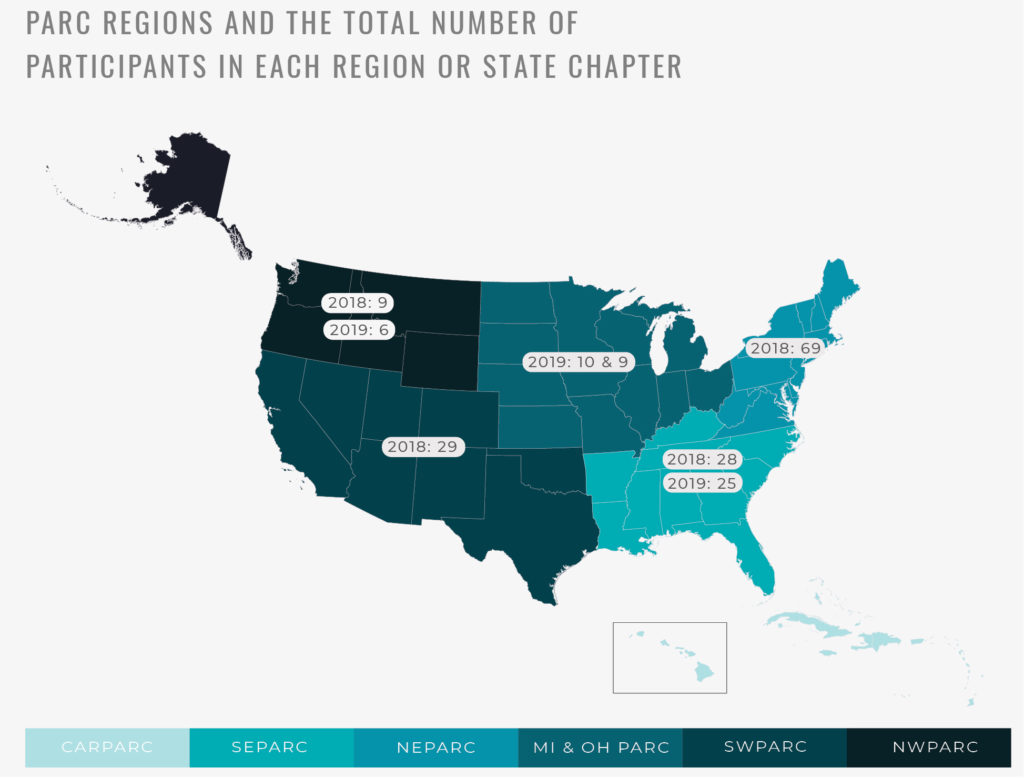
An Overview of These Survey Results
In both 2018 (78%) and 2019 (72%), participants felt that PARC fosters diversity, equity, and inclusion among its members, and that meeting environments were largely positive and supportive (e.g., in 2018 and 2019, respectively, 85% and 87% of meeting attendees were likely or very likely to recommend that others attend PARC meetings). Participants felt they were able to interact with people of similar (79% in both years) and dissimilar (67% in 2078, and 63% in 2019) backgrounds while at meetings, helping to expand their network of colleagues and friends. Participants felt positively about the professional (86% in 2018, 97% in 2019) and social atmosphere (87% in both years) at meetings and reported never feeling discriminated against or harassed about their identity (90% in 2018, and 95% in 2019).
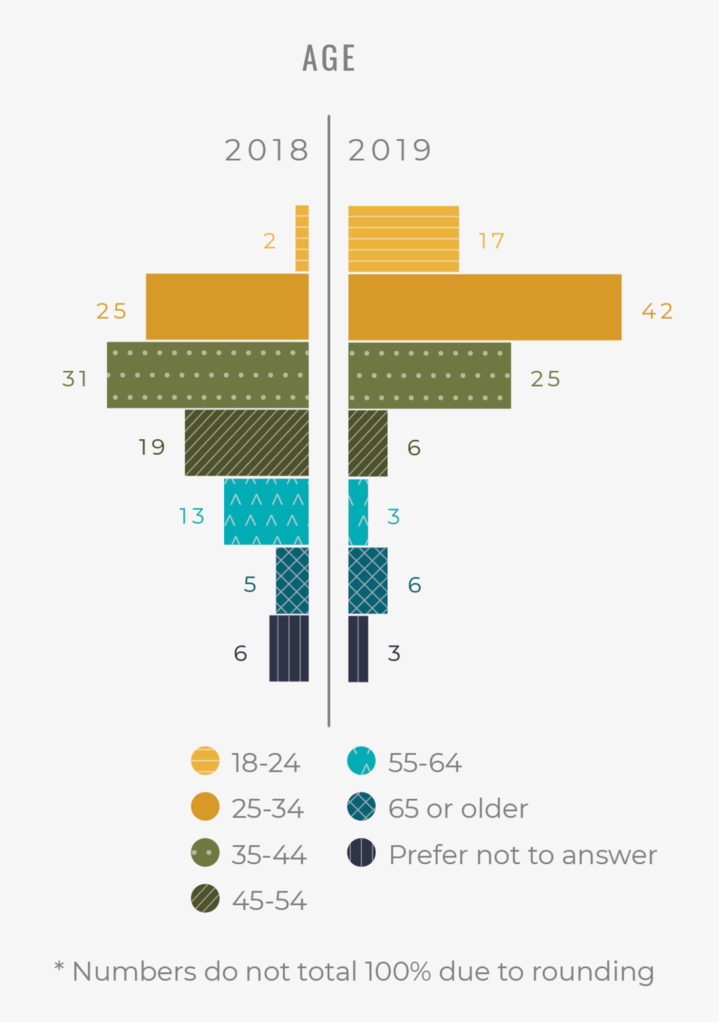
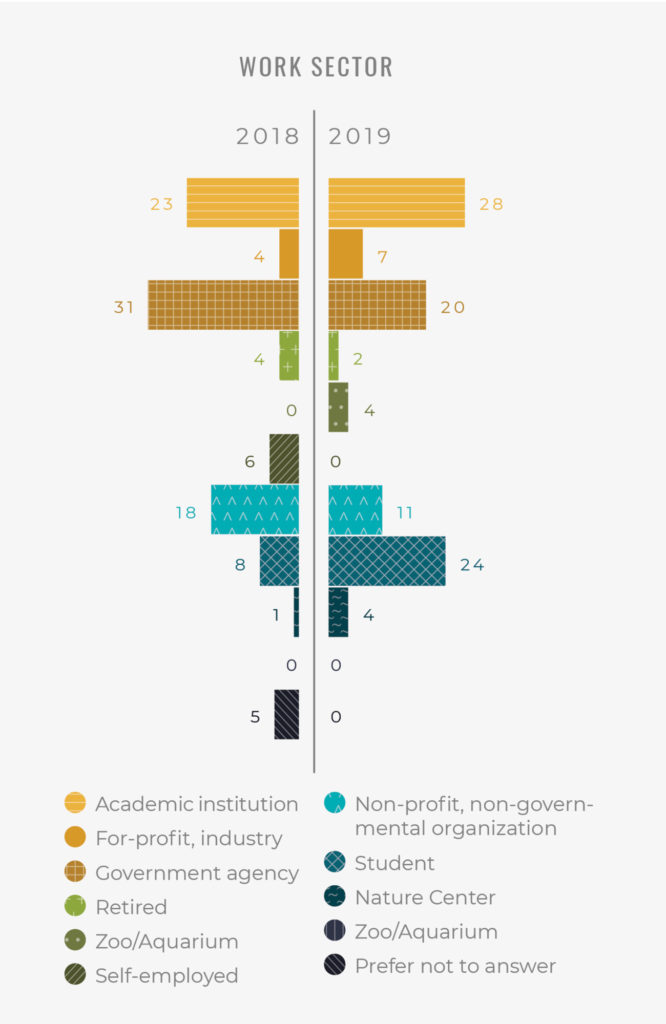
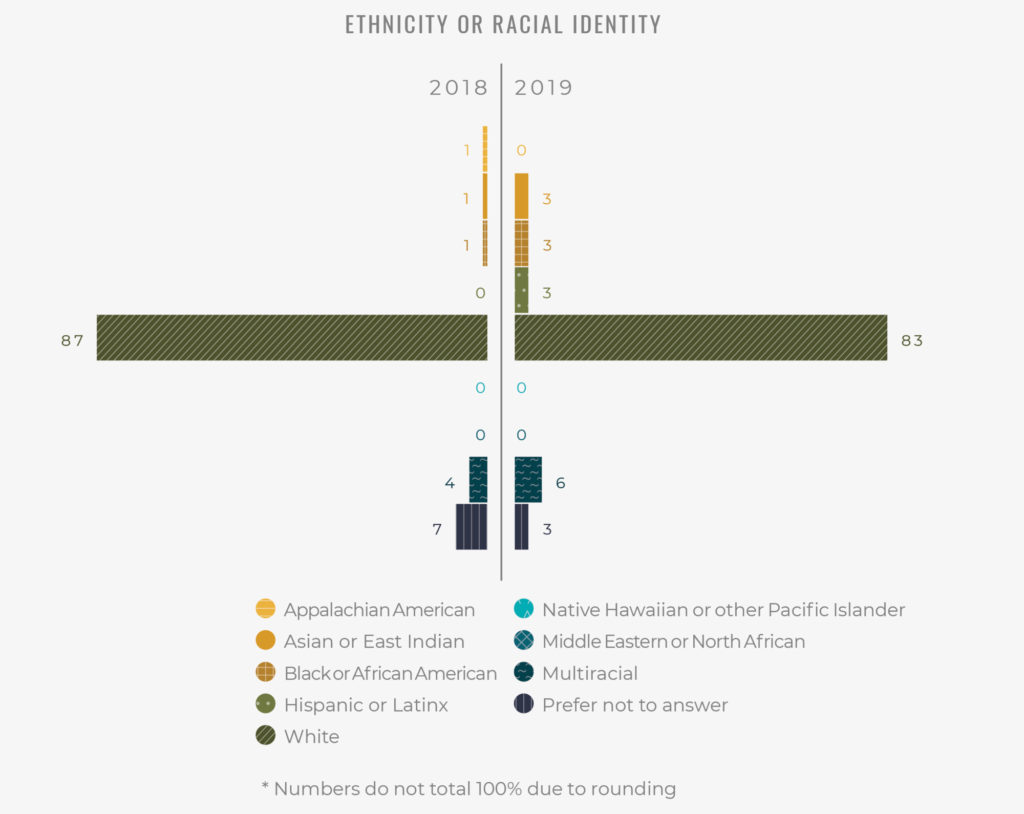
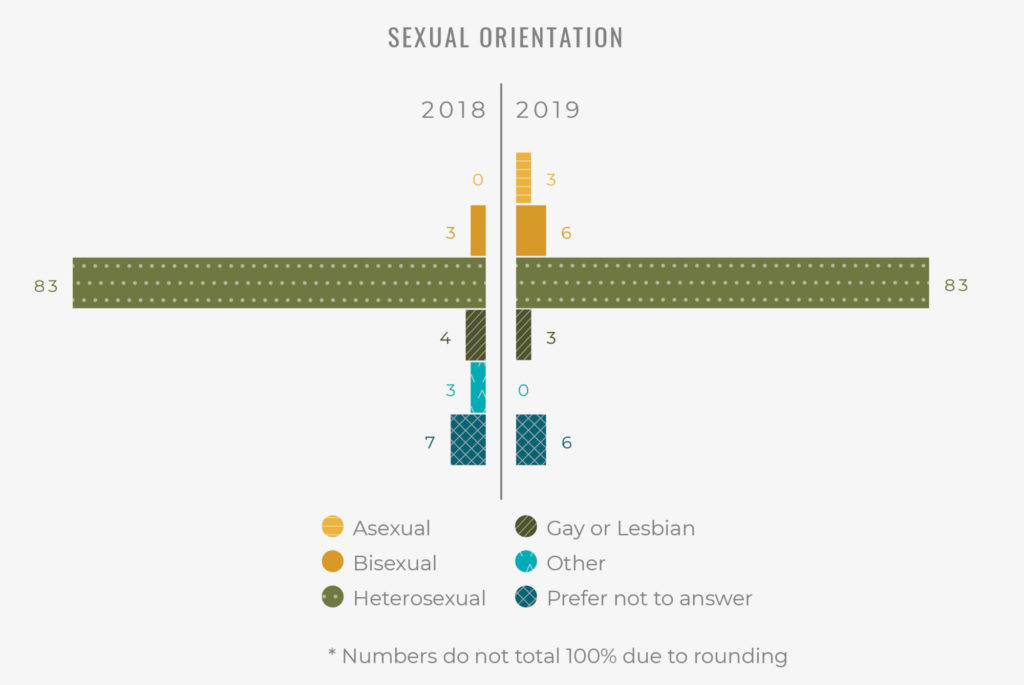
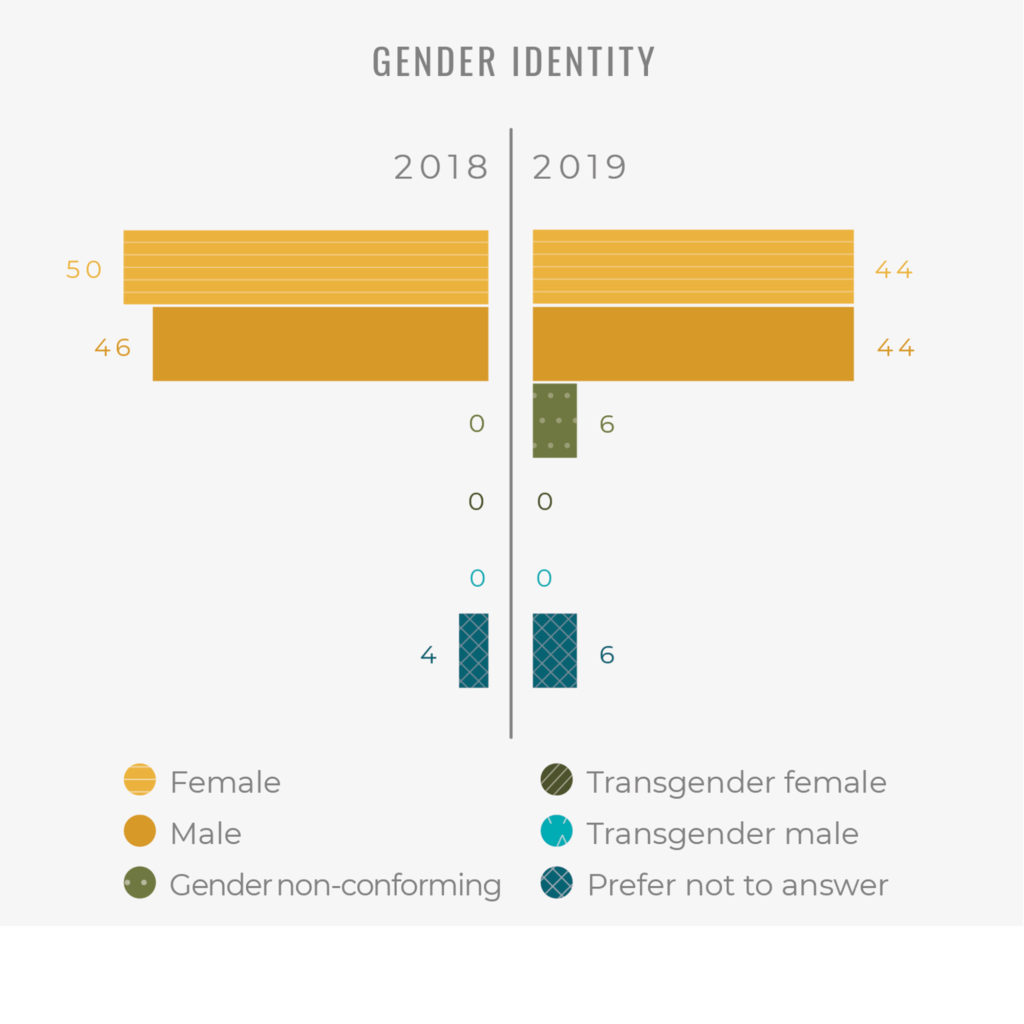
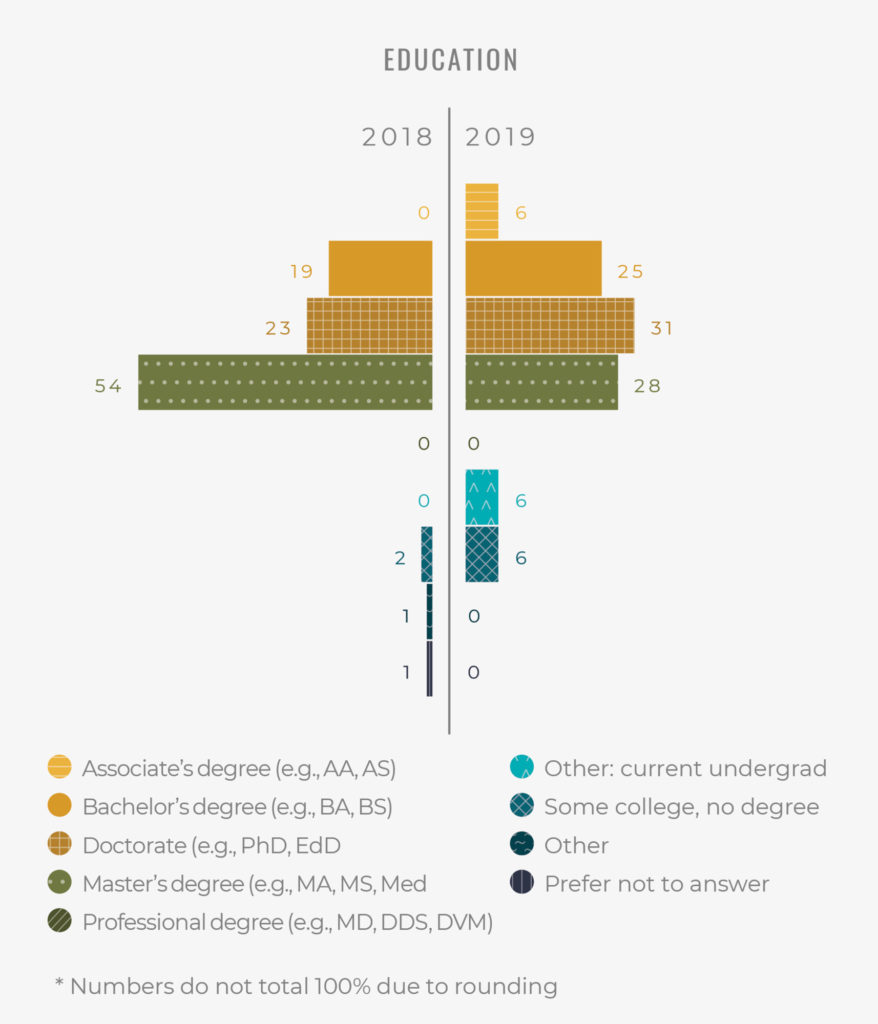
Although most indicated that PARC is doing well overall, a few areas were highlighted for improvement. Only 47% of participants in 2018 and 49% of participants in 2019 felt that regional meetings included presenters from a diversity of backgrounds and life experiences. In both 2018 and 2019, respondents indicated that diversity was lacking among those presenting and or attending with respect to race and ethnicity, gender, or sexual orientation.
To provide opportunities for increased participation and inclusion, PARC’s DEITT is supporting herpetologists earlier in their careers through initiatives such as the scholarship program (parcplace.org/about/diversity-equity-inclusion), outreach events (e.g., Critter Camp, www.critter-camp.org), and Twitter campaigns highlighting our diverse membership (twitter.com/herpetALLogy).
A small number of participants reported that they had observed or been affected by issues of misconduct or discomfort associated with social events at previous PARC events, and some respondents indicated that they had recently observed but not reported negative interactions among meeting participants. In 2018, 56% of respondents were uncertain of how to report discrimination or harassment, or felt that the avenues for reporting these behavior were unclear or nonexistent. Further, 48% were unsure of the actions PARC would take if these behaviors were reported.
The PARC Code of Conduct, which was implemented in mid July 2018, is one step towards addressing issues of discrimination and harassment (please see parcplace.org/about/codes-of-ethics-and-conduct for more details and resources). Encouragingly, in 2019 fewer respondents (27%) indicated that they were uncertain of how to report these issues, or were unsure of the consequences of these behaviors. There were a variety of ways in which participatns suggested that PARC as a whole could help to promote an inclusive atmosphere at PARC events, including reaching out to new members during and outside of social events, and by engaging with students and others involved in poster sessions during the PARC meetings.
Summary
Overall, PARC’s atmosphere promotes engagement bya variety of members, and participants indicated that PARC’s recent actions have made our organization feel like a more inclusive, welcoming place. PARC membership boasts a nearly equal participation of men and women, a wide variety of careers and economic levels, and those speaking a diversity of languages (17% and 20% of respondents in 2018 and 2019 speak more than one language). However, we hope to improve equity and inclusivity along axes of diversity that are currently not well represented (e.g., race and ethnicity). Initiatives being implemented by the PARC DEITT hope to engage a broader range of participants in regional meetings.

